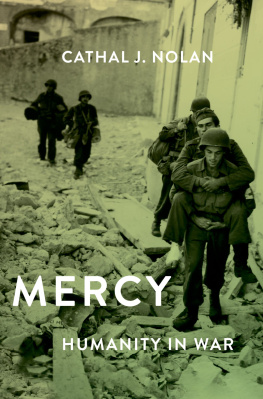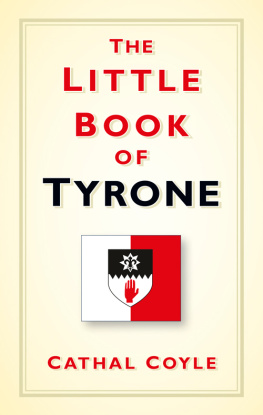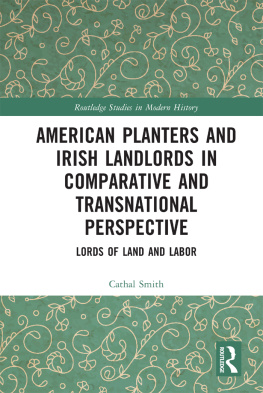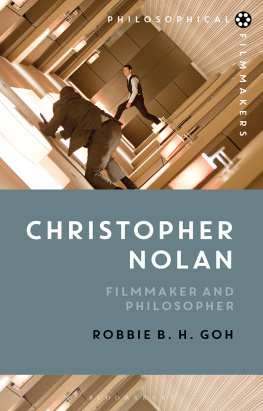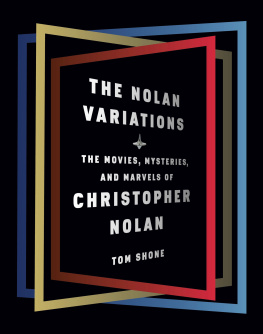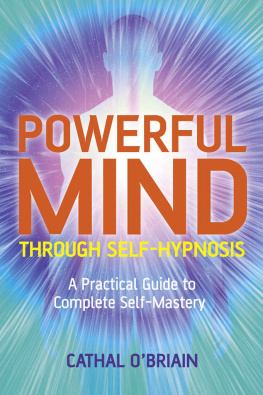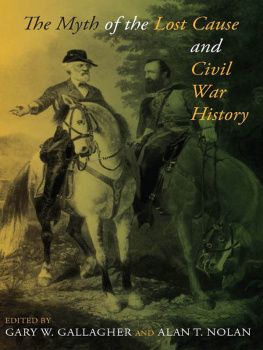Cathal Nolan - The Allure of Battle: A History of How Wars Have Been Won and Lost
Here you can read online Cathal Nolan - The Allure of Battle: A History of How Wars Have Been Won and Lost full text of the book (entire story) in english for free. Download pdf and epub, get meaning, cover and reviews about this ebook. year: 2017, publisher: Oxford University Press, genre: Science / Politics. Description of the work, (preface) as well as reviews are available. Best literature library LitArk.com created for fans of good reading and offers a wide selection of genres:
Romance novel
Science fiction
Adventure
Detective
Science
History
Home and family
Prose
Art
Politics
Computer
Non-fiction
Religion
Business
Children
Humor
Choose a favorite category and find really read worthwhile books. Enjoy immersion in the world of imagination, feel the emotions of the characters or learn something new for yourself, make an fascinating discovery.

- Book:The Allure of Battle: A History of How Wars Have Been Won and Lost
- Author:
- Publisher:Oxford University Press
- Genre:
- Year:2017
- Rating:4 / 5
- Favourites:Add to favourites
- Your mark:
- 80
- 1
- 2
- 3
- 4
- 5
The Allure of Battle: A History of How Wars Have Been Won and Lost: summary, description and annotation
We offer to read an annotation, description, summary or preface (depends on what the author of the book "The Allure of Battle: A History of How Wars Have Been Won and Lost" wrote himself). If you haven't found the necessary information about the book — write in the comments, we will try to find it.
Cathal Nolan: author's other books
Who wrote The Allure of Battle: A History of How Wars Have Been Won and Lost? Find out the surname, the name of the author of the book and a list of all author's works by series.
The Allure of Battle: A History of How Wars Have Been Won and Lost — read online for free the complete book (whole text) full work
Below is the text of the book, divided by pages. System saving the place of the last page read, allows you to conveniently read the book "The Allure of Battle: A History of How Wars Have Been Won and Lost" online for free, without having to search again every time where you left off. Put a bookmark, and you can go to the page where you finished reading at any time.
Font size:
Interval:
Bookmark:
A History of How Wars Have Been Won and Lost

CATHAL J. NOLAN


Oxford University Press is a department of the University of Oxford. It furthers the Universitys objective of excellence in research, scholarship, and education by publishing worldwide. Oxford is a registered trade mark of Oxford University Press in the UK and certain other countries.
Published in the United States of America by Oxford University Press
198 Madison Avenue, New York, NY 10016, United States of America.
Cathal J. Nolan 2017
All rights reserved. No part of this publication may be reproduced, stored in a retrieval system, or transmitted, in any form or by any means, without the prior permission in writing of Oxford University Press, or as expressly permitted by law, by license, or under terms agreed with the appropriate reproduction rights organization. Inquiries concerning reproduction outside the scope of the above should be sent to the Rights Department, Oxford University Press, at the address above.
You must not circulate this work in any other form and you must impose this same condition on any acquirer.
Library of Congress Cataloging-in-Publication Data
Names: Nolan, Cathal J., author.
Title: The allure of battle : a history of how wars have been won and lost / Cathal J. Nolan.
Description: New York : Oxford University Press, [2016] | Includes bibliographical references and index.
Identifiers: LCCN 2016016391 (print) | LCCN 2016017567 (ebook) | ISBN 9780195383782 (hardcover : alk. paper) | ISBN 9780199874651 (Updf) | ISBN 9780199910991 (Epub)
Subjects: LCSH: Battles. | Military history.
Classification: LCC D25 .N65 2016 (print) | LCC D25 (ebook) | DDC 355.409dc23
LC record available at https://lccn.loc.gov/2016016391
Battles decide everything.
CARL VON CLAUSEWITZ, 1812
Instead of a war fought on to the bitter end in a series of decisive battles everybody will be entrenched in the next war. The spade will be as indispensable to the soldier as his rifle. It is very doubtful whether any decisive victory can be gained.
JEAN DE BLOCH, 1899
Modern war is a war of motors. The war will be won by whichever side produces the most motors.
JOSEPH STALIN, 1941
I AM GRATEFUL to the production staff at Oxford University Press for their careful attention to detail and patient editorial assistance in helping prepare the manuscript of this book for publication, along with its accompanying maps and illustrations. I am especially grateful to Executive Editor Timothy Bent for his strong guidance and support from first proposal through editing of the text to completion of the book. I thank him for his patience and sound advice throughout an always complicated processes of the proposal, external review, and editing and revising. I am deeply grateful to two anonymous reviewers for Oxford University Press whose insights and criticisms caused me to clarify and, I hope, argue with more nuance and accuracy a number of key points made in the book. I also wish to thank for their comments on selected portions of the book, while in proposal or manuscript form, Professor of Classical Studies at Boston University Loren J. Samons II; Professor Michael Kort of Boston University; Professor Carl Hodge of the University of British Columbia; Professor Danny Orbach of the Hebrew University of Jerusalem and Professor Alex Roland of Duke University. I am of course forever grateful, and profoundly indebted, to my wife, Valerie, for all that she does by way of support and encouragement, and for so much else.
Cathal J. Nolan
Natick, Massachusetts
June 12, 2016
This idea of world historical battles has retained a hold on the public imagination from the works of the first historians and propagandists of the ancient world. More recently there has been a strong, and mostly justified, reaction against writing even military history as a sequence of major battles. The preference is to explain virtually all major change as arising from longue dure social, economic, cultural, intellectual, technological or other causes. There is much to be said for taking a longer view of causation and change, as well as for studying the social impact and experience of armies in addition to top-down planning and execution of wartime operations. Yet recent academic hostility to traditional military history has gone too far, as has a related professional drift away from major wars as an explanation of wider changes.
Many modern historians are indifferent to military history. Some are openly hostile. Or they redefine the history of war as a branch of social history that looks at its effects on the armies and societies that wage it, rather than looking at war itself. Many are strongly opposed to any claim that decisive wars have been main agents of lasting change. The trend in the profession to dismiss the big claims of older military histories is reinforced by a more general turn away from the idea of large narratives of decision, toward social and cultural histories of smaller folk, littler things, and everyday circumstances, materials and experience. Yet war remains hugely important in explaining much history and wider human affairs. Indeed, it may be the most important thing.
Armed conflict is too important to be reduced to bromides that war doesnt solve anything. War in history has in fact decided many truly important things. Major wars have altered the deep course of world history, not least at critical modern junctures: the turns of the 18th and 19th centuries and first half of the 20th. Such war-filled times showed yet again, if more evidence was ever necessary, that war remains the most expensive, complex, physically, emotionally and morally demanding enterprise that humans collectively undertake. No great art or music, no cathedral or temple or mosque, no intercontinental transport net or particle collider or space program, no research for a cure for a mass killing disease receives even a fraction of the resources and effort humanity devotes to making war. Or to recovery from war, and to preparations for future wars that are invested over years and even decades of always tentative peace. That is a very different point from arguing, as this book does, that battles did not usually decide the major wars of the modern era that decided most everything else.
Wars fundamental importance in world history means that non-military historians will surely return to consider it more closely one day. Meanwhile, military historians have already shifted their focus from battles to the study of permanent armed establishments; systems of finance and logistics as the sinews of war; the roles of industry, bureaucracy and mobilization; and how war is recalled or, at least as often, misremembered and obscured to serve other public purposes. Others study modes of combat and detailed operationsthe intermediate level of warfare between small unit tactics and war-winning (or losing) strategiesthat remain near the center of all military history, only now informed by fresh insights from other branches of history and from other disciplines. In the end, we are all looking to explain the dynamics of immense wars that acted as accelerants and shapers of profound change. How did Europe get to the Thirty Years War? What really underlay the explosion of nationalism and mass violence of the French Revolutionary and Napoleonic Wars? What exactly were the cataclysms of the two World Wars? Why did ordinary people agree to fight them, and extraordinary people frame plans that led not just into world wars but to deliberate mass exterminations, to destruction of social orders and all the old empires? These are questions that really matter, to both historians and the wider public.
Font size:
Interval:
Bookmark:
Similar books «The Allure of Battle: A History of How Wars Have Been Won and Lost»
Look at similar books to The Allure of Battle: A History of How Wars Have Been Won and Lost. We have selected literature similar in name and meaning in the hope of providing readers with more options to find new, interesting, not yet read works.
Discussion, reviews of the book The Allure of Battle: A History of How Wars Have Been Won and Lost and just readers' own opinions. Leave your comments, write what you think about the work, its meaning or the main characters. Specify what exactly you liked and what you didn't like, and why you think so.

